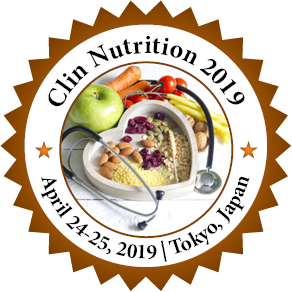Vinod Nikhra
North DMC Medical College & Hindu Rao Hospital, India
Title: Therapeutic potential of gut micro biome manipulation: Concepts in fecal microbiota transplantation
Biography
Biography: Vinod Nikhra
Abstract
Microbial Alterations and Dysbiosis: Th e composition and diversity of gut microbiota is an indicator of health and various groups of commensal bacteria provide health advantages as they enhance metabolism, the immune system, cancer resistance,endocrine signaling and brain function. In general, the gut microbiome remains relatively resilient over time, however,antibiotic use, erratic diet, illness and other factors can lead to alterations and dysbiosis, which weaken various elements of the barrier, causing collapse of the mucus layer that separates epithelial cells and microbiota and reduced expression of antimicrobial peptides which control bacteria including C. diffi cile.
Method: Fecal Microbiota Transplantation (FMT) is administration of a form of fecal material from the donor into the intestinal tract of the recipient in order to directly modify the recipient’s gut microbial composition suitably to confer health benefits. FMT has been used to successfully treat recurrent Clostridium diffi cile infection (CDI). Th ere are preliminary indications to suggest that it may also carry therapeutic potential for other conditions such as infl ammatory bowel disease, obesity, metabolic syndrome and functional gastrointestinal disorders.
Results & Conclusion: Th e occasional adverse eff ects of FMT are diarrhoea, abdominal cramping, belching and nausea, which are self-limiting and resolve in a variable period. An increased risk of IBD fl are, fever and elevation in infl ammatory markers following FMT may occur. Some serious adverse eff ects are upper GI bleeding, enteritis and peritonitis, which vary with the administration method and may be related to complications of the method itself rather than FMT. FMT is regulated in Canada as a ‘new biologic drug’, specifying the indications, patient’s consent, preparing the FMT from a known solitary donor and screening for potential pathogens prior to administration. Th e US Food and Drug Administration (FDA) considers stool as a biological product and drug, and mandates physicians to maintain similar precautions to administer FMT. FMT, so far is not regulated in West by the European Medicines Agency, or elsewhere in Asia, Africa or Australia. Th ere is increasing acceptance for the therapeutic use of FMT. However, the risks and benefi ts remain poorly defi ned because the published FMT experience remains limited. In future, FMT can be a pauci-strain type or multi-strain type depending on the fecal microbiota analysis of the recipient. The suitable strains can be picked-up from donor fecal sample, grown in cultures and transplanted through an appropriate route. Depending on the recipients’ microbiota diagnostic analysis, the FMT using suitable pauci-strains may be a promising development in near future. FMT using frozen sample is another prospective development and may lead toautologous FMT using the sample preserved from the healthy state in a microbiota bank similar to stem cells bank.

